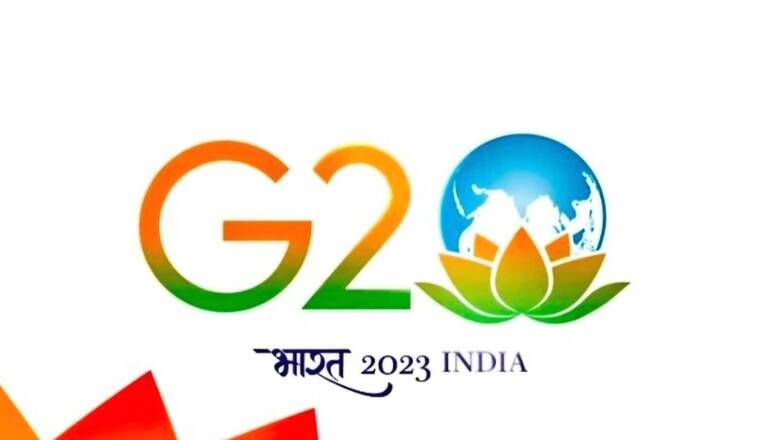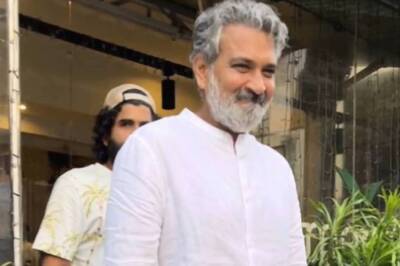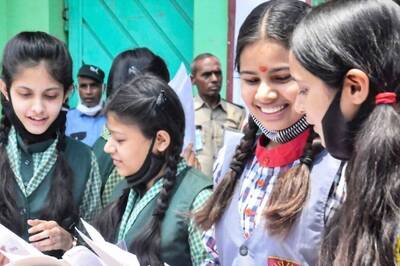
views
India assuming G20 presidency on 1 December 2022 is set to deliver the shared objectives of this inter-governmental organisation, which incorporates around 80 percent of world GDP, 75 percent of world trade, and 60 percent of world population. The theme of India’s G20 presidency — ‘one earth, one family, one future’ — seeks to achieve equitable and harmonious and sustainable development based on a ‘new paradigm of human centric globalisation’. Hence, India as G20 president needs to prioritise four key issues to steer the trajectory of inclusive global development in the days ahead.
Restoring a resilient global supply chain
Global supply chain refers to the organisation and distribution of goods and services through global networks which transcend their sovereign boundaries and constitute a de-territorialised economic space. It is important because it integrates producers, suppliers, and customers through a network of operational logistics, information sharing, marketing strategy, effective financial management, and proper distribution for creating an operative business model and development.
The post-Covid world exacerbated by the ongoing war in Ukraine has disrupted the global supply chains afflicting trade and commerce in many sectors, including logistics, transportation, and shipping. It is quite pertinent to mention here that Russia is the second largest producer of gas which possesses around 24 percent of global reserves, and the third largest producer of oil securing around 12 percent of global reserves. Moreover, Moscow is the largest exporter of oil and gas to global markets which include China and Organisation for Cooperation and Development (OECD) countries and India. Besides, Ukraine is the breadbasket of Europe which largely exports agri-products to China, Egypt, the Gulf, Turkey, India, and the European Union. The prolonged war between Russia and Ukraine has hurt the global economies with staggering inflation aggravating the conditions of many. On the other hand, this supply chain disruption has put a question mark on the leadership and capacity of the UN-led global governance structure in resolving the conflict.
The case of China is an example of how it has manipulated the global supply chain to its advantage through the Belt and Road Initiative (BRI) project by making massive inroads into the resource-rich Asian-African economies. The debt-strapped nations such as Sri Lanka, Pakistan, Angola, Kenya, Djibouti, and Ethiopia have fallen victim to China-centric supply chain dependencies. As alternatives, supply chains could have been diversified and located in resource-specific areas. For instance, China, Russia, Brazil, Norway, the United States, France, Iceland, Malaysia, Bhutan, Kazakhstan, India, Spain and Canada are the major global producers of silicon. But the semiconductor manufacturing industries which use silicon as raw materials are mostly located in Taiwan, South Korea, Japan, China, the United States, Singapore, Malaysia, the Philippines, and Germany. Moreover, Taiwan, South Korea and China account for nearly 87 percent of the global semiconductor markets. In the event of any conflict in the South China Sea, the magnitude of impact will have its bearings on the electronics and communication and supply chain sectors which may pose critical challenges to the digital economy.
Who will set right this asymmetric supply chain dependency? The G20 forum which represents both the developed and developing nations could be a catalyst in breaking this asymmetric dependency. India’s geo-strategic location, democratic values, demographic dividend, robust diaspora, civilisational connectivity, and Indic traditions could be the key factors in shaping the agenda of the G-20 forum in future. India as the G20 president needs to initiate corrective measures and convince the leaders of the US, EU, China, Russia, etc, to focus on the impending challenges in restoring supply chain disruptions. In addition, region-wise potentialities could be identified and workable value chains could be developed through cross-border collaborations to tide over the existing asymmetrical dependencies.
An interdependent and symmetric supply chain order could pave the way for equitable growth and development reducing uneven relations. Further, the UN, Bretton Woods institutions, International Monetary Fund (IMF), World Bank, and other multilateral institutions like World Trade Organisation (WTO) may be structurally modified and be made more inclusive and democratic. Hence, India being G20 president has to weigh its options in a calibrated manner and step in to revamp the global governance structures for the emergence of varied and wide-ranging supply chains.
Accelerating transcontinental connectivity corridors
Transcontinental connectivity refers to cross-continental linkages through road, rail, and international waterways. India as G20 president needs to take decisive steps to promote international land transport and multi-modal corridors including the long-pending Afro-Asian highways for intercontinental connectivity. It has to reinforce the G7 backed Build Back Better World (B3W) global transport corridor project which is based on the principles of “values-driven, good governance, climate-friendly and strong strategic partnerships”. The multi- trillion global infrastructure project covering Latin America, the Caribbean, Africa and Indo-Pacific could be an effective instrument for cross-country collaborations stimulating balanced growth and development. India as G20 president may leverage the United Nation Economic Commission (UNEC) to accelerate completion of the pending works of regional transport corridors i.e. Trans-Asian Highways (TAH), Trans-African Highways (TAH) as alternatives to Belt and Road Initiative (BRI) and its monopoly.
Strengthening counter-terrorism measures
Terrorism has no spatial boundary; it is transnational in nature. It has become a menace posing immense threats to global peace and development. Hence, India as G20 president can secure global solidarity to stave off this challenge through strong and action-oriented policies. In the past, India has earnestly supported all the UN conventions on counter-terrorism to secure a peaceful, free and safe world order. India’s commitment in this connection is inarguably upfront. On the other, the communication technology revolution has brought corresponding changes in terror strategy as well as its operational dynamics.
Hence, India has to invite the attention of the G20 members and non-members for a consensus on Artificial Intelligence (AI) driven counter-terror prevention measures to deal with any emergent threat. Action through anticipation ought to be the measure to be adopted through the effective use of AI and cutting-edge technology. Moreover, New Delhi has to redeem the efforts of the global community against terror financing and money laundering, and given the nature of diverse legal, financial and institutional domestic frameworks, it may press for effective internationalisation of the policies on Financial Action Task Force (FATF) through global partnerships as well as common intelligence sharing to prevent the terror attacks.
Climate action policies for sustainable development
Climate change is a gripping issue globally. It has, therefore, sought global attention to secure a solution to this crisis. Greenhouse gases contribute significantly to global warming posing a challenge to the sustainability of the planet earth. It is anticipated that 3 to 3.6 billion people around the world will be affected by climate change conditions and 700 people are likely to be displaced on account of water scarcity by 2030. The CFC levels that have alarmed are to be reduced drastically in order to restrict global warming to 1.5 degree Celsius.
Hence, to achieve this goal, there is an urgent need to transition from non-renewable to renewable sources of energy. In this context, India- led solar energy grid “One Sun One World One Grid” (OSOWOG) could be a pivot to transnational green corridor linking South Asia, South-East Asia, West Asia and Africa, and later other continents through inter-continental grid corridor. To bring this policy formulation to the level of empirical action would mark a paradigm shift in green energy discourse.
India as G20 president has to reinforce climate action diplomacy with China, the US and European Union to achieve a net-zero world by 2025. Thus, New Delhi has to supplement the UN Framework Convention on Climate Change (UNFCCC) induced climate action policies through strong climate mitigation and climate adaptation strategies, and ought to deal with the G20 members as well as multilateral institutions in shaping a transparent global climate architecture toward the success of a green global world in future. Many of the developed industrialised countries of the G20 must understand the climate change dilemma and adapt to the emergent conditions through shared partnerships. Otherwise, there could be catastrophic consequences for humankind.
These are the critical areas India ought to look at and find workable and effective solutions to make the world better. The G20-specific structural constraints, inflation, the effects of Covid-19 pandemic, Russia-Ukraine War, and China’s diplomatic obscurity and policy unpredictability constitute challenges for India. New Delhi must exercise its grit to convert the constraints into opportunities.
Dr Jajati K Pattnaik is an Associate Professor at School of International Studies, Jawaharlal Nehru University, New Delhi. Dr Chandan K Panda is an Assistant Professor at Rajiv Gandhi University, Itanagar. Views expressed are personal.
Read all the Latest Opinions here


















Comments
0 comment